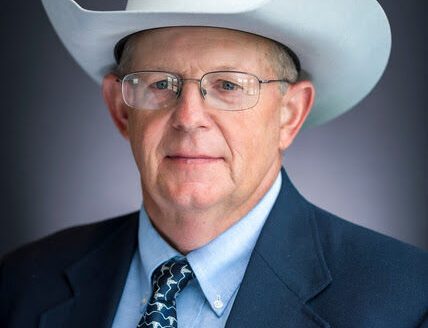“It’s time to right a wrong.”
Jonathan Small, Topeka attorney serving as lobbyist for the Greater Kansas Racing Alliance, made that emphasis at a recent horse owner’s workshop in Emporia.
“Kansas City’s Woodlands Racetrack drew 1.7 million fans in 1990 alone,” Small said. “But, nearly a decade ago racing in Kansas was brought to a halt.
“It’s essential to level the playing field between state-owned casinos and privately-owned racetracks,” Small exclaimed.
Several legislators and others working to again bring pari-mutuel racing to Kansas attended and spoke about the unfairness of taxation.
“Privately-owned racetracks are unable to operate under such excessive tax burden,” Small said.
Elaborate racing facilities including The Woodlands, Wichita Greyhound Park and Frontenac’s Camptown Greyhound Park all closed blaming unfair taxing.
Dog and horse racing tracks at Abilene, Eureka and a couple others continue only with rural community input.
However, Tony Prohaska, GKRA executive director, optimistically reported, “We are in the home stretch.
“The Kansas Legislature has the opportunity to pass House Bill (HB) 2545 restoring horse and greyhound racing in the state,” Prohaska verified.
Small agreed, “The bill offers a simple fix to change an unfair law. When equity and fairness are returned, Kansas racetracks can reopen.”
The Greater Kansas Racing Alliance, according to Prohaska, is striving to create equity. “We are working to support a rich history in Kansas, while growing the state economy.
“Racing provides new tax revenue to state and local governments,” he stated.
“The state has run racetracks out of business and that means many others, too,” Small said.
Kansas horse and greyhound trainers, breeders, owners and related industry have been forced to go out-of-state to do business. “These are small-businesses and family-run operations,” Small said.
Racing has a strong heritage in Kansas tracing back to the 1800s. The Woodlands was the only track in the United States to run both horse and greyhound races.
Horse and dog racing create about 4,000 Kansas jobs generating about $200 million in annual wages, Prohaska said.
Allied industries like farming, implement firms, feed and equipment stores and other main street businesses are supported by the racing industry.
Sign up for HPJ Insights
Our weekly newsletter delivers the latest news straight to your inbox including breaking news, our exclusive columns and much more.
“Furthermore, racetracks allow Kansas horse and dog breeders to invest their money in the economy instead of spending it out of state,” Prohaska said.
“Pari-mutuel racing turns recreation and tourist dollars into a pipeline of financial support,” Small tallied. “It creates a market-driven, win-win dynamic the most basic economic way.”
Debated and voted out of the Kansas House Federal and State Committee which was a “significant hurdle,” Prohaska said, HB 2545 now goes to the full House.
“When the House Committee of the Whole passes the legislation, it will move to the Senate,” Prohaska explained. “Meanwhile, we have introduced a Senate version of the House bill.
“As these bills move through the legislative process, they will pick up speed and momentum,” Prohaska said. “It’s not unusual for racing and gaming legislation to be processed toward the end of the legislative session.”
Most importantly, Small said, “Racing could help close the budget gap by bringing in an estimated $23 million in annual state and local tax revenue.
“Zero investment is required on the part of state or local government,” Small insisted.
The Woodlands, Camptown and Wichita Greyhound Park are all owned by Wichitan Phil Ruffin, Las Vegas casino owner and investor. Ruffin has indicated intentions to reopen those tracks if the key Kansas legislation is approved.
“The odds are good and the case for restoring horse and greyhound racing in Kansas is compelling,” Prohaska said. “However, legislative vigilance is critical and it will take written and vocal support from our grassroots supporters throughout the state.”
Reiterating the point, Small said, “Contact your senators and representatives now about the importance of legislation returning horse and greyhound industries to Kansas.
“The time is now for the Kansas Legislature to level the playing field between state run casinos and privately-owned racetracks. We must push for passage of legislation to bring back horse and greyhound racing to the state of Kansas,” Small summarized.
Information can be found at raceforkansas.com, and on Facebook, Twitter and Instagram.



